'Yeh Dil Maange More'..Remembering Captain Vikram Batra
”I'll either come back after raising the Indian flag in victory or return wrapped in it,” these words that Captain Vikram told a friend before leaving for war truly reflect the swashbuckler's daredevilry that completely changed the way India looked at its Army.
-
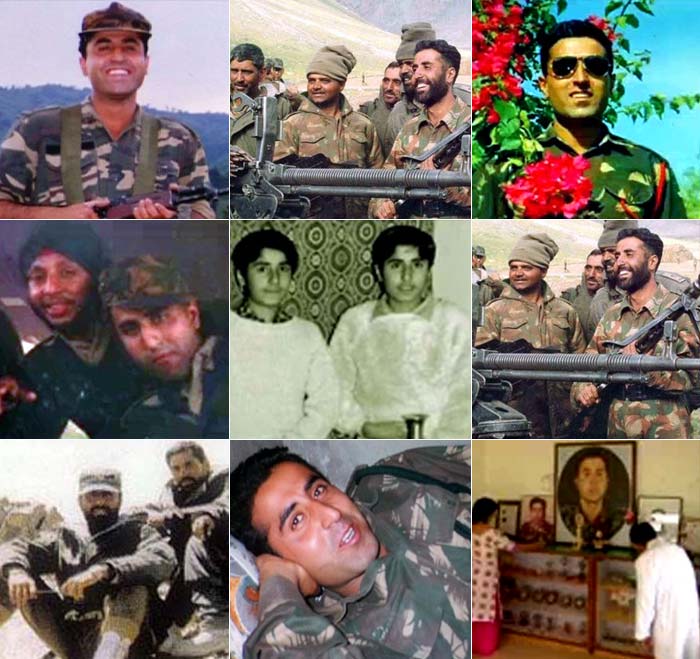 The Kargil war was a long drawn out battle, a tenacious combat that was a fight to the finish. As the whole nation waited with baited breath, the Indian flag firmly fluttered over Tiger Hills on the morning of July 4, 1999 and all of India celebrated. Operation Vijay was successful.
The Kargil war was a long drawn out battle, a tenacious combat that was a fight to the finish. As the whole nation waited with baited breath, the Indian flag firmly fluttered over Tiger Hills on the morning of July 4, 1999 and all of India celebrated. Operation Vijay was successful.
It was one man who became the face of the Indian soldier at Kargil, whose words reverberate even today - 'Yeh Dil Maange More..' Captain Vikram Batra took the advertising slogan and elevated it to a motto for life.
The intrepid soldier lost his life on this day, 12 years ago, while trying to save a fellow soldier.
Here's a look at the ‘Sher Shah' whose valiant efforts paved the way for India's victory in the Kargil war. -
 Vikram Batra initially wanted to join the Merchant Navy. His uniform had been stitched and his tickets booked, but he changed his mind.
Vikram Batra initially wanted to join the Merchant Navy. His uniform had been stitched and his tickets booked, but he changed his mind.
The nation now remembers him as Shaheed Captain Vikram Batra, Param Vir Chakra. -
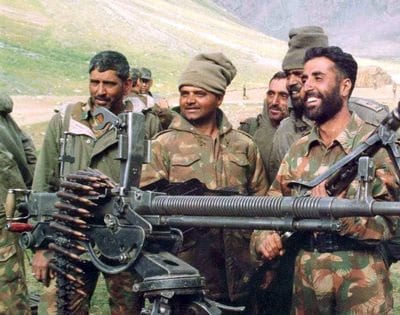 Vikram Batra was commissioned in the Indian Army as a Lieutenant of the 13 Jammu & Kashmir Rifles. He was later promoted to the rank of a Captain on the battlefield itself. During the war, he was ordered to recapture the peak 5140, at a height of 17,000 feet, as the Pakistani invaders had taken positions there in bunkers. The peak was the highest point on the Tololing Ridge and one of the most arduous and crucial peaks in the Drass region.
Vikram Batra was commissioned in the Indian Army as a Lieutenant of the 13 Jammu & Kashmir Rifles. He was later promoted to the rank of a Captain on the battlefield itself. During the war, he was ordered to recapture the peak 5140, at a height of 17,000 feet, as the Pakistani invaders had taken positions there in bunkers. The peak was the highest point on the Tololing Ridge and one of the most arduous and crucial peaks in the Drass region. -
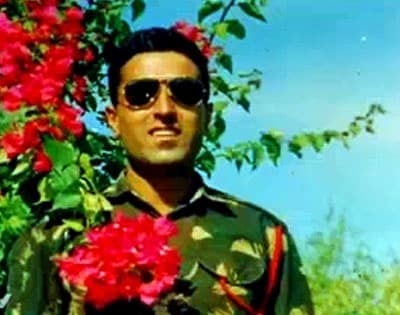 Knowing that the steep cliffs do not provide any cover against the enemy's line of sight, Captain Batra decided to lead his company from the opposite side to surprise them. Even though he was seriously injured, he led a hand-to-hand combat, and flung grenade after grenade at the infiltrators' gun posts.
Knowing that the steep cliffs do not provide any cover against the enemy's line of sight, Captain Batra decided to lead his company from the opposite side to surprise them. Even though he was seriously injured, he led a hand-to-hand combat, and flung grenade after grenade at the infiltrators' gun posts.
Their heavy machine gun, which was not letting Indian troops advance, was finally brought down, and the soldiers of 13 Jammu and Kashmir Rifles took over. "He called me right after he triumphed, and his words were, 'Dad, I have captured the post'. That was the happiest day of my life," smiled his father fondly. -
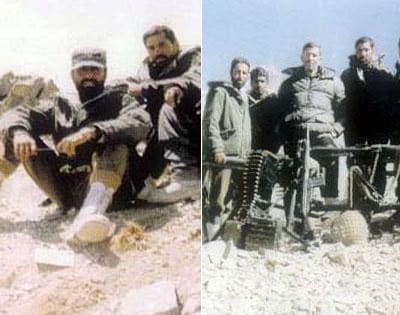 Captain Vikram Batra had managed to lead his team to a decisive victory and all his men made it alive. The brilliantly led operation that is considered by many as one of India's toughest campaigns in mountain warfare, catapulted Captain Vikram Batra to the national headlines. His triumph was being beamed from television screens across the country.
Captain Vikram Batra had managed to lead his team to a decisive victory and all his men made it alive. The brilliantly led operation that is considered by many as one of India's toughest campaigns in mountain warfare, catapulted Captain Vikram Batra to the national headlines. His triumph was being beamed from television screens across the country. -
 The capture of Point 5140 subsequently led to other success stories.
The capture of Point 5140 subsequently led to other success stories.
After that ordeal, the young lion, with his pack, ravaged through adjoining peaks, even though he was wounded. Amid thick fog, Captain Vikram with his men began a precarious climb to peak 4875 at a height of approximately 16,000 feet. -
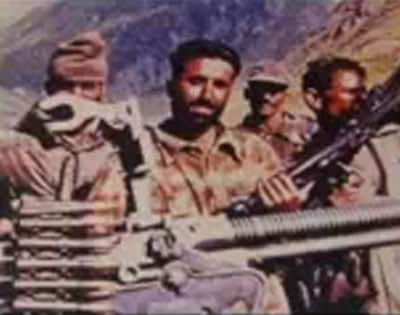 On July 7, at Point 4875, Vikram called his Commanding Officer again, just to say, 'yeh dil maange more'. As if in answer, the enemy launched a counter attack, and Vikram rushed to rescue an injured officer.
On July 7, at Point 4875, Vikram called his Commanding Officer again, just to say, 'yeh dil maange more'. As if in answer, the enemy launched a counter attack, and Vikram rushed to rescue an injured officer.
"He did not allow other soldiers to go, and told them 'tumhare biwi bachche hain'. “That morning, my son made the supreme sacrifice for his country and fellow men," his father prided. -
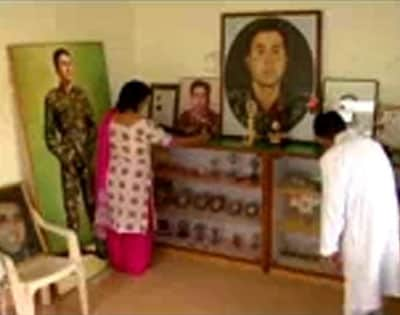 ‘Jai Mata Di' - these were Captain Vikram Batra's last words, the words that also put the seal on India's victory.
‘Jai Mata Di' - these were Captain Vikram Batra's last words, the words that also put the seal on India's victory.
The peak is now called ‘Batra Top', named after him. -
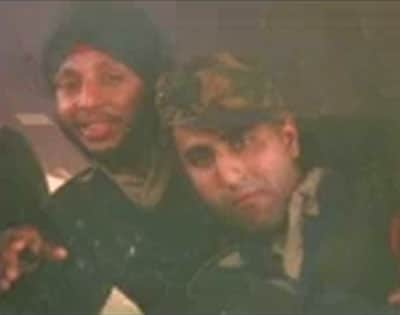 Captain Vikram Batra sacrificed his life for the country but his military prowess became synonymous with ‘the stuff of the legends'.
Captain Vikram Batra sacrificed his life for the country but his military prowess became synonymous with ‘the stuff of the legends'.
For his sustained display of the most conspicuous personal bravery and leadership of the highest order in the face of the enemy, Captain Vikram Batra was awarded the Param Vir Chakra, the country's highest award for valour. -
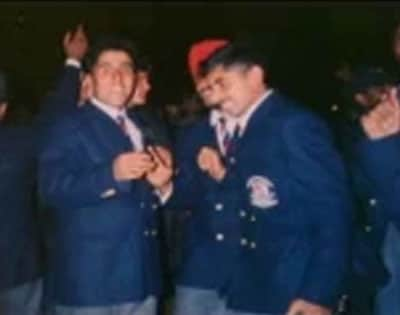 Well before his name was proposed for Param Vir Chakra, he was recommended for Mahavir Chakra (MVC), when he earned the rank of captain on the highest battlefield: Tololing. A commando with a trainer's grade, he was a table-tennis pro in his school and college days, and two-time best cadet of the National Cadet Corps (NCC). And he didn't disappoint in the real game, either.
Well before his name was proposed for Param Vir Chakra, he was recommended for Mahavir Chakra (MVC), when he earned the rank of captain on the highest battlefield: Tololing. A commando with a trainer's grade, he was a table-tennis pro in his school and college days, and two-time best cadet of the National Cadet Corps (NCC). And he didn't disappoint in the real game, either. -
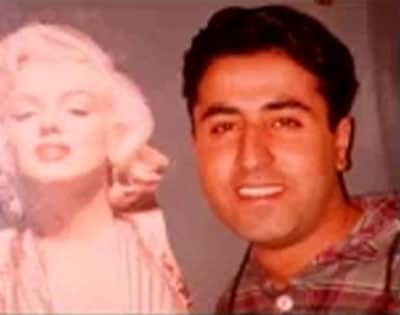 “His cheerfulness was contagious, and his ability to crack jokes in the most tense situations, superb, “ recalls his father GL Batra. Captain Vikram Batra, who kept clearing one bunker after another on the arduous heights of Tololing and Drass, was one of the toughest soldiers of the Indian Army. His fellow officers remember him as one who always led from the front.
“His cheerfulness was contagious, and his ability to crack jokes in the most tense situations, superb, “ recalls his father GL Batra. Captain Vikram Batra, who kept clearing one bunker after another on the arduous heights of Tololing and Drass, was one of the toughest soldiers of the Indian Army. His fellow officers remember him as one who always led from the front. -
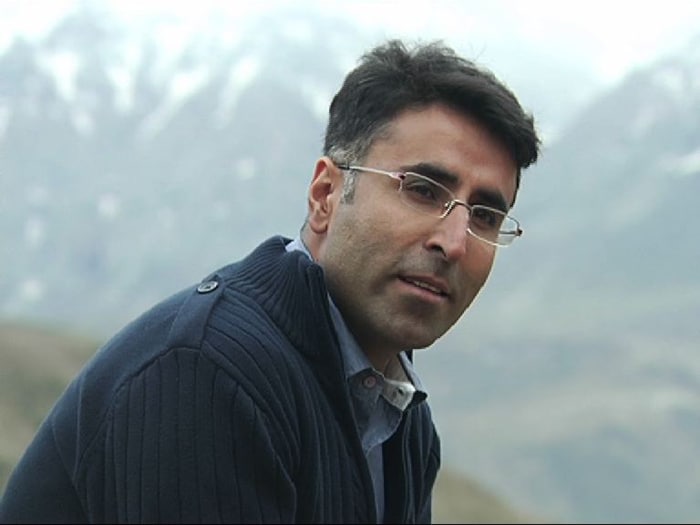 The braveheart's identical twin Vishal Batra has treasured the letters Vikram wrote to him from the war zone, and the words written in the letters speak volumes about the officer.
The braveheart's identical twin Vishal Batra has treasured the letters Vikram wrote to him from the war zone, and the words written in the letters speak volumes about the officer. -
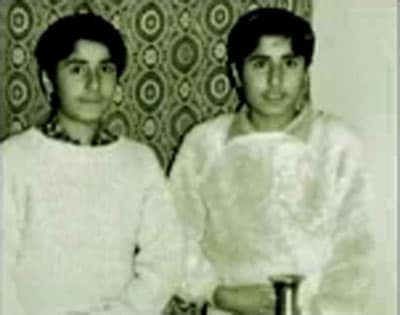 "He used to write to me regularly, but I never responded, thinking my replies would never make it. But one fine day, I wrote to him, and very next day, he died. For months, I was in deep shock, and could not do anything. But then, I resumed office only to get a pleasant surprise. One of my colleagues handed me the last letter he wrote."
"He used to write to me regularly, but I never responded, thinking my replies would never make it. But one fine day, I wrote to him, and very next day, he died. For months, I was in deep shock, and could not do anything. But then, I resumed office only to get a pleasant surprise. One of my colleagues handed me the last letter he wrote."
In this pic, a young Vikram Batra with his twin Vishal. -
 "Don't mind my handwriting. I'm at a height of 17,200 feet. It's very cold here," the letter read.
"Don't mind my handwriting. I'm at a height of 17,200 feet. It's very cold here," the letter read. -
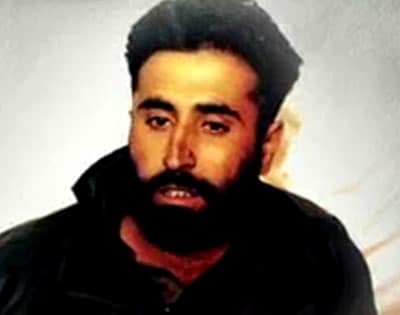 ”I'll either come back after raising the Indian flag in victory or return wrapped in it,” these words that Captain Vikram told a friend before leaving for war truly reflect the swashbuckler's daredevilry that completely changed the way India looked at its Army.
”I'll either come back after raising the Indian flag in victory or return wrapped in it,” these words that Captain Vikram told a friend before leaving for war truly reflect the swashbuckler's daredevilry that completely changed the way India looked at its Army.
Advertisement
Advertisement
Advertisement
Advertisement
